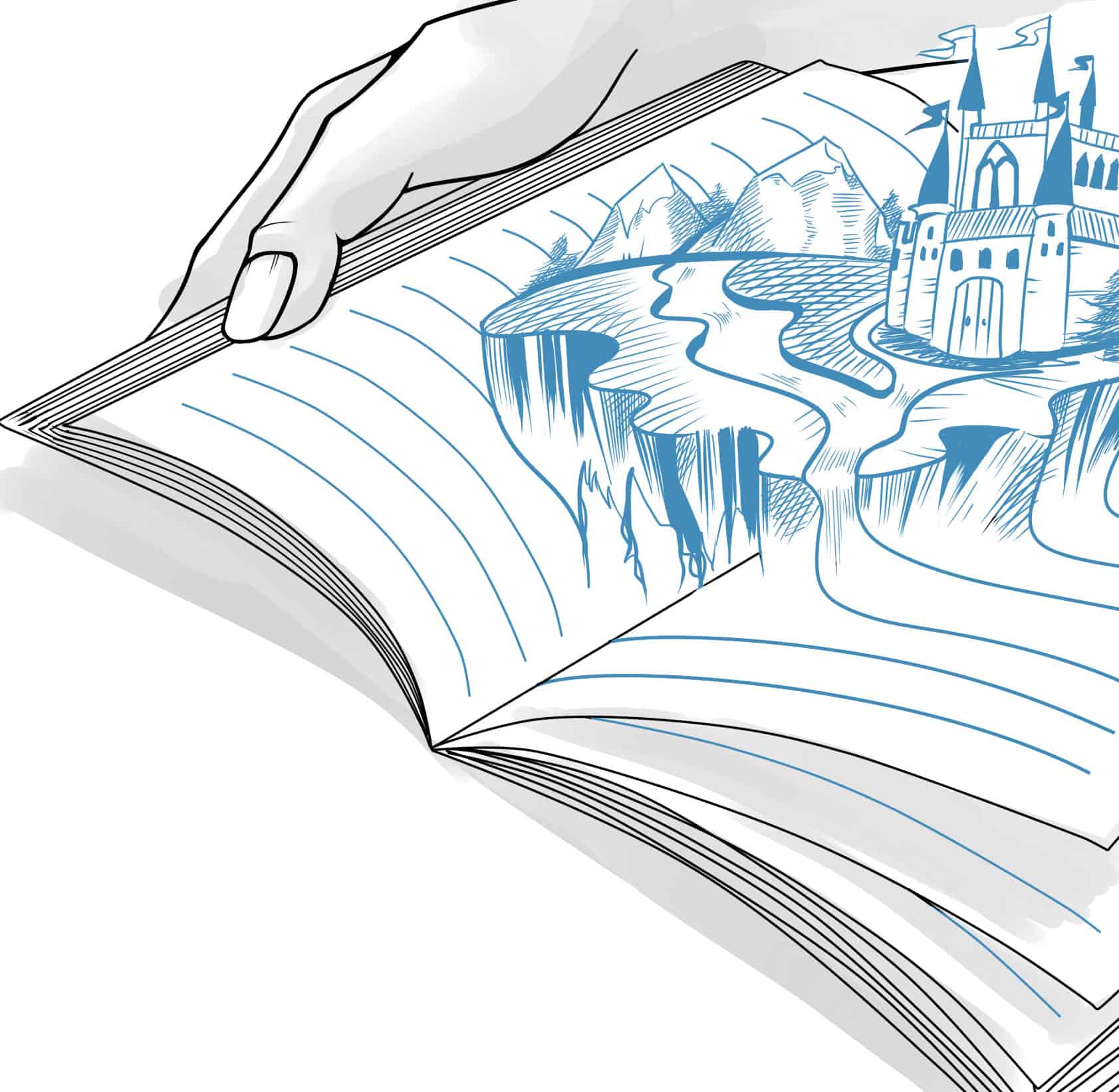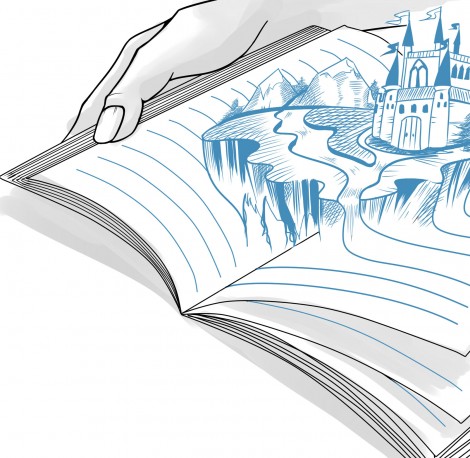I love paper! There, I’ve said it. I know it uses up a lot of trees (for every ton of virgin office or copy paper, two–three tons of trees are cut down), but I really love it. In this age of the internet, e-readers, tablets, and smartphones, I’ve decided to dedicate these (ironically online) words to the dying appreciation of paper. Although our paper consumption continues to increase each year, it seems that the number of people who genuinely appreciate paper — how it feels, how thick it is, and what is written on it — is decreasing. For me, paper means ideas; a paper full of words has the ability to communicate new information, trigger new thoughts, and shape opinions. A blank sheet might be even better — blank sheets represent possibility. Blank sheets are created with the intention to be filled: filled with words, sentences, paragraphs, images, novels, and so on.
A brief history of paper
Today the immediate association of paper is with trees. However, it is only since the 1850s that paper has been made from wood pulp. Before then, paper was made mostly from hemp, bamboo, and old textiles.
The word “paper” actually comes from the Greek word papyros (papyrus), an ancient writing material made from strips of papyrus plant. In the fifteenth century, papyrus was replaced by parchment, which was easier and cheaper to produce. Parchment is made from the specially prepared skin of sheep, goats, and calves. In the sixteenth century, paper underwent another change: rags and linens were introduced to the papermaking process.
It would take approximately 200 years for the next major papermaking advancement — it was only in the mid-nineteenth century that large scale wood pulp processing was developed. Trees then became the primary source for papermaking, a trend that continues today.
Books
Another easy association with paper is a book; however, in our increasingly digitized world, books are no longer always made of paper. According to a recent Pew Research Centre Internet survey, digital reading is on the rise and traditional reading is decreasing; the percentage of Americans aged 16 and older who had read an ebook grew from 16 per cent in 2011 to 23 per cent in 2012, while readers of traditional books dropped from 72 percent to 67 percent. Meanwhile the number of people who owned an ebook or tablet jumped from 18 per cent in 2011 to 33 per cent in 2012.
Contrary to popular belief, however, ebooks and tablets are not so bad — I myself happen to own both and can see the advantages of reading on different mediums. But I remain firmly convinced that I will always love traditional books a little bit more; their materiality allows me to be more easily transported out of this world and into the world on the page. I also love running my hand across the binding and quickly flipping through the remaining pages of a book, anticipating all the information, plot twists, and character developments to come.
Traditional books have permanence — placing a book on a bookshelf is a testament to my commitment to it. It reminds me — as well as any others who may see it — of the fact that I spent time with that book, which is something that ebooks do not do. Traditional books can also be shared. I suppose one could argue that libraries now offer widespread collections of ebooks available to borrow and download directly to a computer, but I must say that there is something isolating and alienating about borrowing ebooks.
Ebooks do not sit on shelves; they respond well to keyword searches, but they do not allow the individual to browse the shelf, pick up a copy of the book, and simply connect with its pages. It is much harder for a friend to browse your ebookshelf and select a book. Although reading is oftentimes a solitary activity, the process of selecting a book can be social. It is this social element of book-choosing that we lose when we go digital.
Of course, the medium through which a book is read does not alter the meaning of the words on the real or digital page. Tim Parks, in a blog entry for the New York Review of Books, aptly states: “Hopefully it is not the quality of the paper that determines our appreciation for the classics.” Of course, I am not trying to argue that a book’s words become more meaningful if they are communicated on paper. What I am arguing, though, is that the experience of interacting with the words changes depending on the medium through which they are communicated to us.
The blank page
Sometimes when I’m alone and have nothing to do, I like to flip through the blank sheets in my notebook. I often sit and wonder what I’ll end up filling the pages with. I’m not an artist, so drawings and sketches are unlikely. Will I jot offhand ideas and lists down? Will I use the pages to take notes and summarize information, or will I record my intimate thoughts and feelings? Much in the same way as moving to a new city presents a person with the opportunity for a fresh start and new connections, a new notebook presents me with, among other things, the opportunity to create new ideas, make sense of something new, or simply document a process or experience.
The rise of digital writing tools has also shifted the things that we write. How many of us stop to write down full sentences? How many write whole paragraphs? And what about writing an entire article with pen and paper? I’m not trying to criticize people who write on computers — I myself am writing this very article on my computer. Furthermore, I am definitely part of the digital generation — I grew up working and learning on computers. We had cellular phones in high school, and have iPhones in university. Lectures are often recorded and accessible online and most of my classmates (including myself at times) take notes with their computers. Barring midterms and final exams, I can hardly remember the last time I wrote an entire paper or article with a pen or pencil. Nevertheless, I have often wondered what it would yield. Would my thoughts be more cohesive and succinct, or would they be more scattered? Would I be more or less poetic? Does the medium through which we choose to communicate matter?
A number of studies have demonstrated the benefits of writing things down, many concluding that writing helps us to retain and recall information. One study, conducted by psychology professor Dr. Gail Matthews of the Dominican University of California, found that people are 33 per cent more likely to follow through with their goals if they write them down, share them with friends, and send weekly updates about them to said friends.
I know that for myself, writing things out on paper allows me to be more creative; I’m less confined by the straight lines and orderliness enforced by most word processing software. With paper, there is nothing impeding you from writing in circles, drawing arrows, or connecting two otherwise disparate words or ideas — some ideas just do not lend themselves to the linear writing styles facilitated by computers — but how does the thing on which we write shape which words, sentences, paragraphs, and ideas we create? Also, why is it that some forms of writing persist on paper while others have almost completely been transitioned to computers?
Take, for example, journal and diary writing. Although one could “journal” on a computer — a technique often confused with blogging, which is intended for public consumption — I suspect that many avid journal writers are still loyal to their pen and paper. Why is that? Is it because we feel closer and more connected to our words when we write them on paper? Is there something more intimate, perhaps even delicate, about writing our thoughts, emotions, and recollections down on paper rather than typing them onto our computer? Does the slower pace of putting pen to paper provide us with more space for reflection and meditation? Whatever the answer — and I’m sure it varies from one person to the next — I think it is worth pausing and contemplating the ways in which the medium affects the genre and the type of writing we undertake.
I am not advocating for the wasteful use of paper. As I mentioned earlier in this article, paper consumption is on the rise and that is something that environmentalists and non-environmentalists alike should be concerned about; the Worldwatch Institute estimates that paper usage has increased six-fold in the last 50 years and will likely continue to rise. Nevertheless, I am asking for people to develop a stronger appreciation for paper: its texture, the way it feels when it is bound together and sold as a book, and the feeling of using a pen, leaving behind a stream of words or images, upon it. In short, I want you to love paper as much as I love paper — and I love paper a lot.



